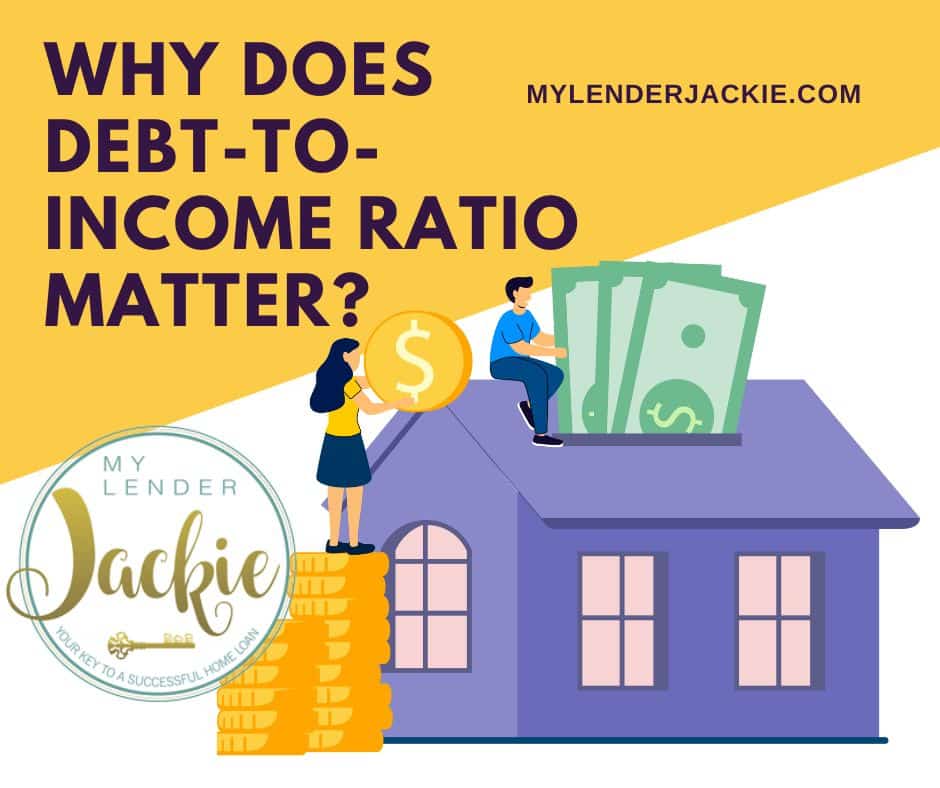Why Does Debt-to-Income Ratio Matter? There are multiple metrics lenders use to determine someone’s ability to repay a mortgage, as well as how much debt they are able to take on. The more you understand the mortgage approval process and what your lender is looking for, the better prepared you can be for the process.
If you would like to talk to someone about getting pre-approved for a mortgage, contact us any time to find out how we can help!
What is a Debt-to-Income Ratio?
Debt-to-Income ratio or (DTI) is one of the most important metrics your loan officer and underwriters will review to determine your mortgage approval status. This is a number that shows how much debt you are currently managing and how it relates to your current income.
Your DTI is calculated by dividing your total monthly debt payments by your gross monthly income (the amount you make before taxes, 401k contributions, or anything else). For example, if you make $5,000 per month in gross income and have $1,000 total per month in debt payments (including minimum payments on credit cards, auto loan payments, or any other monthly debt bills), your DTI would be 20%. In other words, 20% of your gross monthly income is dedicated to debt payments.
Lenders will generally look for a DTI below 43% for approval. Your specific numbers will make a difference in how much you will be approved to borrow.
Why does my DTI matter?
Your DTI is important because it tells your lender how much debt you are currently handling. It’s not in the best interest of the lender or the borrower to offer a mortgage that will be more than you can take on. Your DTI helps us determine the amount that makes sense for you so that you can enjoy a successful homeownership journey. Your DTI is separate from your credit score, but they are two of the metrics that work together to paint a picture of your overall financial strength.
Whether you are looking to apply for a mortgage as a self-employed person, planning to buy your first home, or preparing to get pre-approved for the first time in a while, your DTI is going to be an important factor in the application process.
Can I improve my DTI?
Your DTI changes any time your income increases or your debt payments decrease. If you calculate your current DTI and realize it is too high to meet your goals, you can tackle it from either direction. Making more money is always a win, for more reasons than improving your DTI.
However, if that isn’t realistic right now, determine how you can lower your monthly debt payments. You may want to prioritize paying off a debt that has a high monthly payment before applying. You can also be strict with yourself about taking on any new debt as you prepare to buy a home, as these new debt payments would further raise your DTI. If you aren’t sure if you’re ready to apply, it never hurts to talk to a pro and find out how you can be best prepared for this exciting step toward homeownership.
To learn more about how to qualify for a mortgage, or whether you are currently ready to get pre-approved, talk with one of our loan officers any time!


